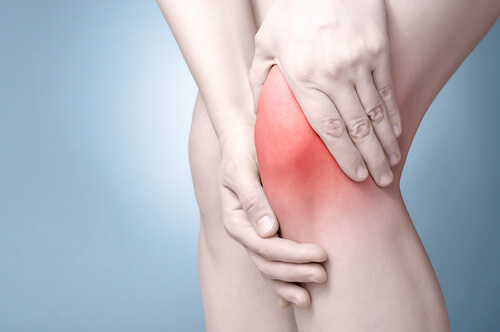8 Common Causes of Uncomfortable Bloating


Reviewed and approved by the doctor José Gerardo Rosciano Paganelli
Are you experiencing uncomfortable bloating, but you don’t know what is causing it? Pay attention, because it may be a response to one of these eight possible causes.
1. Dehydration
Dehydration can be one of the causes for liquid retention.
This is because when we suffer from light dehydration, the body starts to accumulate liquids, especially in the ankles. Also, the lower part of the abdomen tends to suffer from bloating.
How to avoid it
In oder to avoid it, you should try to drink at least 5 glasses of water a day (1.2 liters), avoid alcoholic beverages as well as coffee and carbonated drinks.
2. Liquid retention

We often tend to retain liquids. To avoid this, you should avoid excess intake of salt. The ideal daily dose is 5 grams or one teaspoon.
In the case that we consume more than this amount in our foods, the body starts to retain liquids and we end up very bloated.
How to avoid it
This problem is something that can be fixed quite easily. To do so, all you have to do it reduce your salt intake.
Also, remember that you can choose different spices to flavor your foods instead of salt.
3. Allergies
Allergies can also be a cause of bloating. If you notice that the bloating is accompanied by itching and redness, it is an allergic reaction.
How to avoid it
If you notice the bloating developing quickly and the area around your neck and face are affected, you should immediately seek medical help to take care of the problem urgently.
With the help of some antihistamines, you can control the problem.
4. Hormonal imbalance
Regulate your hormones naturally.
A hormone imbalance can also be the cause of bloating. It is one of the other causes of liquid retention in the body.
If you notice bloating in your stomach and legs, and you have gained weight, the most probable cause is that you have a hormonal problem.
How to avoid it
The first thing that you have to do is review your diet because it may not be adequate. Try to consume foods rich in proteins. Also, try to reduce the amount of sweets, spicy foods and salty foods that you eat.
In any case, don’t forget that it is recommended that you see and endocrinologist or a gynecologist so that they can get you the right treatment for you to follow.
5. Renal diseases
If you feel bloated, especially in the mornings and in very concrete places like your face, it may be due to a renal disease.
Other symptoms that would be related to this type of disease are pain in the waist and changes in urine color.
How to avoid it
- The first thing you should do is take care of your diet
- Try to sleep on your side if you sleep with your mouth down, since this can cause bloating in your face. If the problem continues, don’t hesitate to go to a nephrologist.
6. Cardiac diseases

Bloating located in areas like the legs and stomach is also a sign of cardiac diseases.
If is it this, the bloating would be accompanied by considerable chest pain, fatigue and shortness of breath.
How to avoid it
The most probable thing is that you have a cardiac edema. Talk to your doctor as soon as possible.
7. Medications
Bloating can also be a consequence of certain treatments.
Among the types of medications that cause bloating are anti inflammatories, analgesics and oral contraceptives.
How to avoid it
If a medication is causing you to bloat, the best thing you can do is talk to your doctor about it. You may be able to substitute it for a similar medication.
8. Your lifestyle

For example, if you are someone who stays in the same position all day, whether it be on your feet or seated, you may experience swelling in your legs and feet.
How to avoid it
If you have a job that requires you to be seated, the best thing to do is to take breaks and move around a bit.
Try not to sit with your legs crossed, wear comfortable shoes and compression socks in order to avoid swelling.
All cited sources were thoroughly reviewed by our team to ensure their quality, reliability, currency, and validity. The bibliography of this article was considered reliable and of academic or scientific accuracy.
- O’Brien, J. G., Chennubhotla, S. A., & Chennubhotla, R. V. (2005). Treatment of edema. American Family Physician. https://doi.org/10.1001/jama.1931.02720470071030
- Trayes, K. P., Studdiford, J. S., Pickle, S., & Tully, A. S. (2013). Edema: Diagnosis and management. American Family Physician. https://doi.org/10.1016/B978-0-12-375083-9.00114-8
- Subudhi, A. W., Askew, E. W., & Luetkemeier, M. J. (2012). Dehydration. In Encyclopedia of Human Nutrition. https://doi.org/10.1016/B978-0-12-375083-9.00068-4
This text is provided for informational purposes only and does not replace consultation with a professional. If in doubt, consult your specialist.








